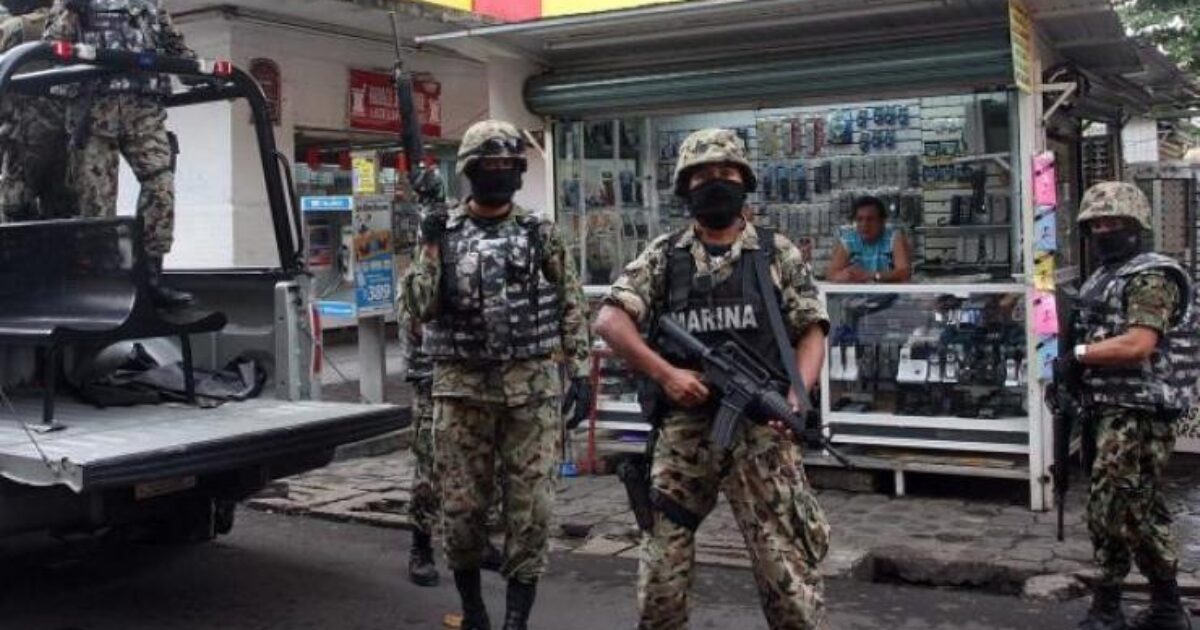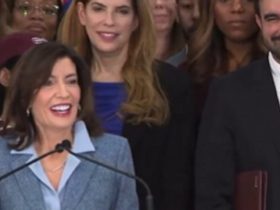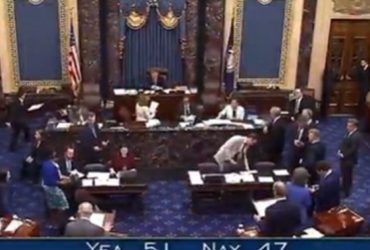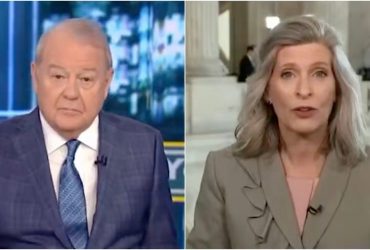Mexican marines in an operation against Los Zetas. Photo credit: Wikimedia Commons.
President Trump has imposed 25% tariffs on Mexican imports, citing Mexico’s “intolerable alliance” with drug cartels and failure to curb fentanyl trafficking.
The White House issued an unprecedented formal accusation, stating that “the government of Mexico has afforded safe havens for the cartels to engage in the manufacturing and transportation of dangerous narcotics.”
Mexican President Claudia Sheinbaum rejected the accusations as “slander,” denying any government ties to criminal groups.
However, a major corruption scandal has surfaced involving two former Tabasco State officials, appointed by Senator Adán Augusto López Hernández, a close Sheinbaum ally and confidant of former President López Obrador, who are now fugitives accused of leading a cartel-linked criminal network.
Leaked 2019 military emails show López placed cartel-connected individuals in key security roles, undermining Morena’s anti-corruption platform and casting doubt on Sheinbaum’s denials.
Instead of acknowledging her government’s failure to combat cartel influence, Sheinbaum has blamed the United States.
She argued that if Washington wanted to address fentanyl abuse, it should crack down on street-level narcotics sales and money laundering.
She also claimed the U.S. opioid epidemic stems from the overprescription of synthetic opioids approved by the FDA.
Sheinbaum has repeatedly claimed, “If there is such an alliance anywhere, it is in the U.S. gun shops that sell high-powered weapons to these criminal groups.” Data shows that between 200,000 and 500,000 American firearms are smuggled into Mexico each year.
The U.S. Justice Department reports that 74% of weapons used by Mexican criminal groups originate from the United States, and in 2023, more than 17,000 guns submitted by Mexican authorities for tracing were linked to American sources
. However, there is no evidence of a direct alliance between U.S. gun shops and the cartels. According to the FBI, the same Mexican criminal networks that smuggle drugs into the U.S. also smuggle firearms south into Mexico.
The document shows that cartels now possess military-grade weapons, including belt-fed machine guns, rocket launchers, and grenades. Since 2018, Mexican authorities have seized 221 fully automatic machine guns, 56 grenade launchers, and 12 rocket launchers.
The Jalisco New Generation Cartel was recently found with five rocket launchers during its war with the Sinaloa Cartel.
While Mexico claims these are U.S. military weapons, it has provided no serial numbers or proof of origin.
Such arms are not sold over the counter in the U.S. and may instead originate from legal foreign sales or Cold War-era stockpiles in Central America.
Sheinbaum has claimed, “There is also organized crime in the United States, and there are American people who come to Mexico with these illegal activities,” asking, “Otherwise, who would distribute fentanyl in the cities of the United States?”
An Animal Político investigation found that over 2,600 U.S. citizens have been arrested in Mexico for organized crime-related offenses, including drug and firearms smuggling, since December 2018.
However, there is no evidence of U.S.-based gangs operating inside Mexico. Most of those arrested were naturalized Latinos, primarily Mexican Americans, recruited by Mexican cartels to operate within Mexico. In the end, it remains Mexico’s failure to control its own cartels that has enabled this dynamic.
Trump has designated eight Mexican cartels as terrorist organizations, including the Jalisco New Generation and Sinaloa cartels, raising speculation about possible military action.
Trump has suggested firing missiles into Mexico to combat drug cartels, and when asked about military action, responded “Mexico’s gonna have to straighten it out really fast, or the answer is absolutely”.
Sheinbaum has firmly warned against US military intervention, stating “This cannot be an opportunity for the U.S. to invade our sovereignty. With Mexico it is collaboration and coordination, never subordination or interventionism, and even less invasion”
Mexico made significant concessions by extraditing 29 cartel members to the U.S. in late February, including high-profile trafficker Rafael Caro Quintero. However, recent cases underscore the limits of cooperation.
A Mexican judge placed Chinese national Zhi Dong Zhang, accused of laundering $150 million for cartels and trafficking fentanyl, meth, and cocaine, under house arrest despite U.S. extradition requests. Incidents like this reinforce Trump administration concerns about cartel influence and weaknesses in Mexico’s judicial system.
Mexico also agreed to deploy 10,000 National Guard troops to the northern border to combat fentanyl trafficking.
However, past experience shows that widespread corruption has rendered the military ineffective in fighting the drug war. High-profile cases confirm this: in 2020, former Defense Minister Gen. Salvador Cienfuegos Zepeda was accused of aiding the H-2 Cartel, and in 2024, former Public Security Secretary Genaro García Luna was sentenced to 38 years for taking bribes from the Sinaloa Cartel.
A 2022 military data leak further exposed systemic corruption, revealing that a top law enforcement officer allegedly received $250,000 a month to protect a cartel, and that soldiers tasked with fighting traffickers were selling them weapons.
Trump has accurately described the severity of the situation, stating, “I think the cartels run large sections of Mexico… Mexico is, I think, very afraid of the cartels actually.”
Given this reality, completing the wall, securing the U.S. border with military support, and effectively quarantining Mexico may be the most practical path forward.
With the 25% tariff in place, Mexico is effectively paying for the wall through lost export revenue and declining foreign direct investment, much of which was originally intended to serve the U.S. market.
The post Trade Dispute Unresolved as Mexican Government Fails to Control Cartels, Blames U.S. appeared first on The Gateway Pundit.











